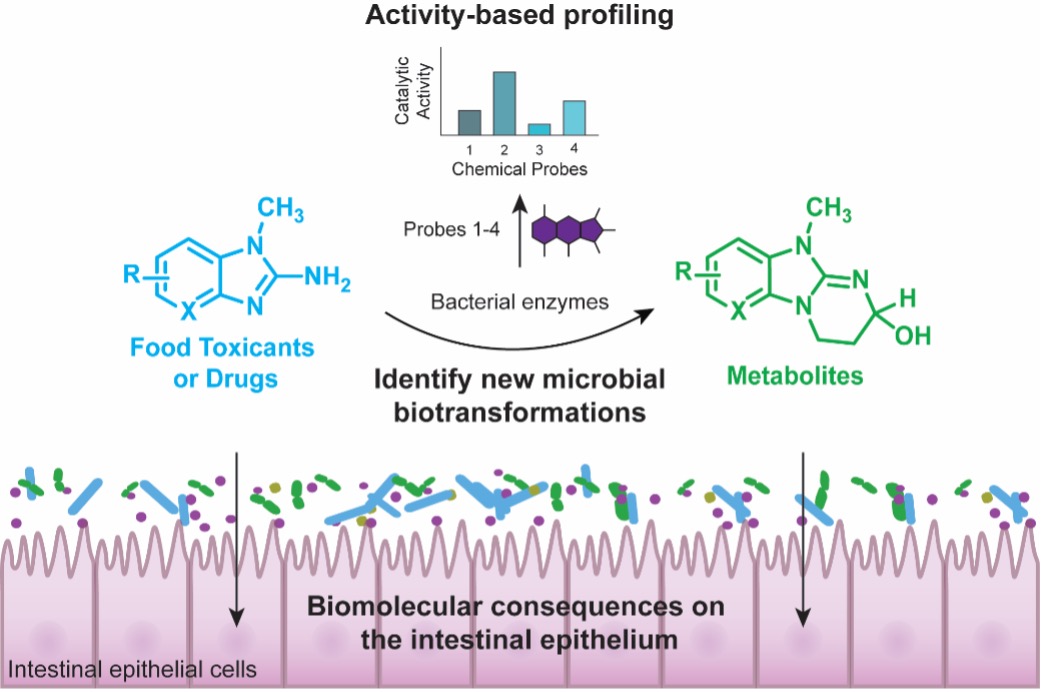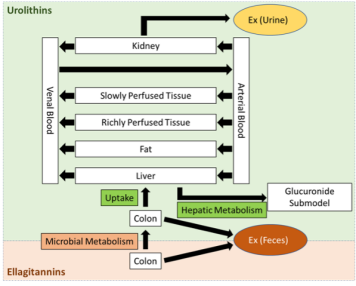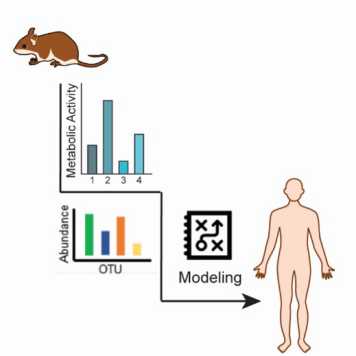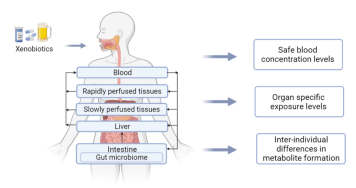Impact of microbial metabolism on chemical toxicity and disease pathology

The human gut is home to a diverse community of microbes that can block or promote toxic effects and other bioactivities of chemicals from foods, drugs, and the environment. For example, mutagens such as heterocyclic amines in well-cooked meat, can be inactivated by microbial transformation. Bacterial metabolism can also give rise to hormone-mimicking compounds that might disrupt endocrine function.
Our work is centered on elucidating mechanisms connecting the composition of the gut microbiome of individuals with pharmaco- and toxicokinetics of gastrointestinal metabolites. This requires a quantitative assessment of microbial metabolism in anaerobic fecal batch fermentation experiments. Resulting kinetic parameters are incorporated in physiologically-based pharmacokinetic modeling and quantitative in vitro to in vivo extrapolation as alternatives to animal testing. In addition, we develop and apply mass spectrometric methodologies, biochemical techniques and in vitro toxicological assays to identify metabolite structures, active enzymes, and relate microbiome-mediated transformations with disease risk.
Projects
Mitigating Transplant Risk with Microbiome Multi-Omics Personalizing management in allogeneic hematopoietic stem cell transplantation using multi-omics biomarkers

Urolithins: A bioinformatics / personalized nutrition approach to enlighten kinetics of beneficial gut microbial products. (UroKin) Linking interindividual differences in the gut microbiome with pharmacokinetics of beneficial bacterial metabolites

ELUMICA: Elucidating Microbial Metabolic Capacity Profiling the biochemical functionality of the human gut microbiota for in vitro-in vivo extrapolation.

GutXen: Modeling the impact of gut microbial metabolism on food-born xenoestrogen exposure Evaluating the risk of endocrine-disruptive gastrointestinal metabolites by PBPK modeling and quantitative in vitro to in vivo extrapolation